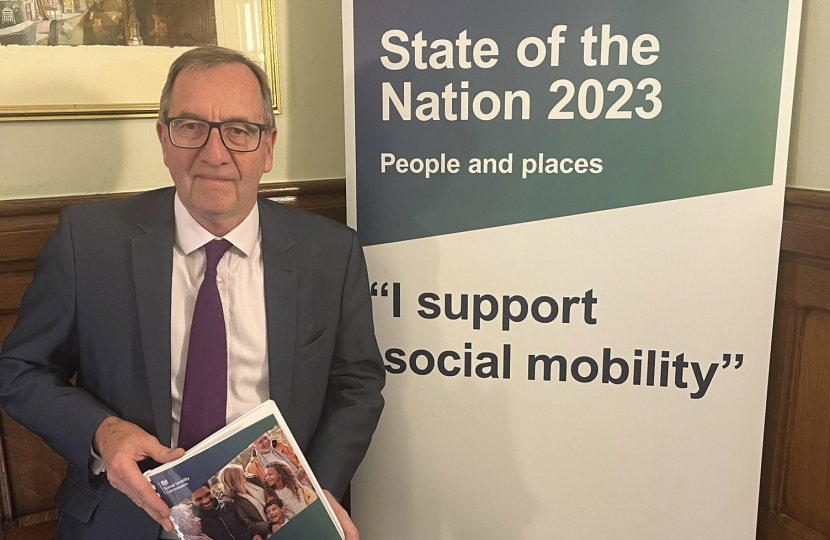
Member of Parliament for Sedgefield, Paul Howell, has today thrown his support behind the Social Mobility Commission's latest report The State of The Nation 2023: People and Places.
In their State of the Nation report in 2022, the Commission showed that social mobility in the UK is not in decline and that the UK is not a low-mobility country. Of course there is still room for improvement.
They also argued that conventional approaches to social mobility have been too narrow, tending to define ‘the social mobility problem’ as one of equal access to professional and managerial occupations.
The traditional approach focuses too much on the university route, pathways to professional careers, and long leaps in social mobility. But we need a wider focus. Thinking only about access to top professional jobs neglects far too many of those at the bottom.
There are many people who can’t, or simply don’t want to, take this route. Some don’t want to move to a big city to get a top professional job. Some aren’t in a position to achieve that kind of long-upwards mobility – they may have left school without basic levels of reading or maths. For people in these positions, offers of internships at a top London law firm may be missing the point. Good, accessible, local jobs must be part of our mobility picture.
Along with the narrow focus on professional pathways, there is too much emphasis on improving relative mobility – the mobility chances of one social group relative to another. This is important, but one group’s relative gain must be another group’s relative loss. The Commission argues that it is equally important, if not more so, to think about improving absolute mobility – increasing the total amount of opportunity available, so that more people can move upwards – whether that is measured in occupational status, income, or other measures.
Moreover, while relative mobility has remained stable, there is evidence to suggest there are some concerning changes in absolute mobility, partly in terms of occupation, but more in terms of income. We must think about how to tackle this, ideally by growing the economy so that opportunities can increase and wages can rise, especially in areas where growth has been weak.
It is important to deal with the slowing growth in professional jobs in the UK so that more people can move up the occupational ladder. We must broaden our view of what type of technical and professional skills are in demand in the labour market. Most of all, it means making sure that the next generation can look forward to good mobility prospects, just as previous generations have.
Data constraints and limitations often lead to poor definitions of social mobility and misdiagnosis of where the problems actually lie. One constraint is that we can only look at group averages in our reporting. Not everyone in a disadvantaged group will do poorly, but some will. Interventions that are based on this data need to be better targeted to those who have the worst prospects. We must not lose sight of the truly disadvantaged.
The traditional approach also tends to ignore culture and values as drivers of social mobility. Their impact should not be underestimated, but they are difficult to measure.
The data shows very clear inequalities across the country, captured in our regional analysis of the mobility rates and drivers. But the findings illustrate the nuance and complexity of social mobility. For example, they show patterns that do not simply associate the location of elite professions with the need to ‘move out to move up’. We want people to be able to remain where they grew up, if they want to, with access to the same opportunities they would get elsewhere.
The research also suggests a one-size-fits-all approach based on educational achievement does not work. Other factors, such as economic opportunity, the quality of jobs and wages, may be just as important. Paul is particularly interested in the relationship between social mobility and economic innovation, as this appears to be very important to a strong and fair economy.
Commenting on the report, Paul Howell MP, said:
As the co-chair of The APPG for Left Behind Neighbourhoods, social mobility is incredibly important to me. The circumstances of someone's birth should not determine their life outcomes and I am pleased the Government is supporting the Commission in delivering this. Britain is an aspiration nation and its people should be able to go as far as their talents will take them.

